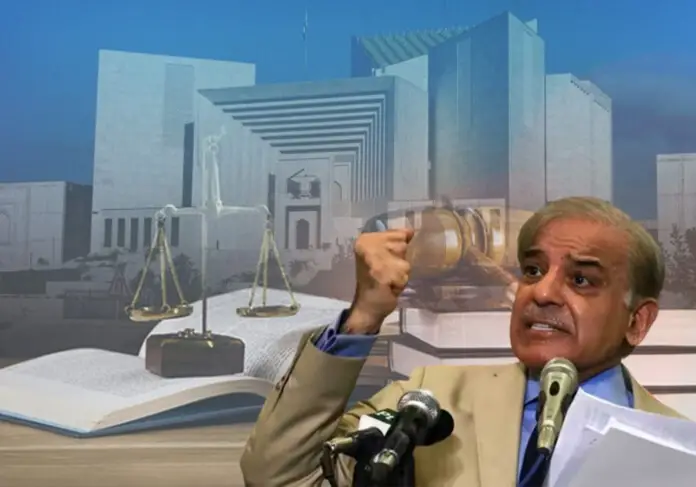Pakistan has been at a crossroads since 1947, and we have witnessed several instances where political leaders have challenged the undemocratic actions taking place in this country. It has even been proven on numerous occasions that all parties work together to defend the Constitution, democracy, and democratic institutions.
Following the Punjab and KP election decisions and Pakistan Tehreek-e-Insaf’s (PTI) already escalating tensions with the country’s military establishment, the Pakistan Muslim League-Nawaz (PML-N) appears to be confronting the judiciary head-on with anti-supreme court rhetoric.
Typically, we see dictators challenge the parliament, enact martial law as a first step towards violating the constitution, and then disregard all rules or take advantage of the situation. The recent action of the parliament to disobey a Supreme Court ruling was a first-of-its-kind act in which the parliament elected to defy the Supreme Court through a resolution.
The Election Commission of Pakistan must abide by the court’s orders because, according to legal opinion, this resolution lacks a legal basis. Furthermore, bear in mind that PTI, who filed the petition, included ECP as a party.
Many political observers think that the PML-N London, led by former prime minister Nawaz Sharif, has chosen to challenge the judiciary and reject the decision to hold elections. However, certain PML-N senior figures have their doubts, despite agreeing with the majority decision. Few PML-N leaders think that continuing to ignore elections will further alienate voters from the party, and the perception that the party is attempting to avoid elections is growing significantly.
The former prime minister Yousaf Raza Gillani is a fine example of how the Supreme Court could remove a leader for contempt. The PDM parties attempted with this motion to convene a joint session of parliament and provide Prime Minister Shehbaz Sharif with a “protective cover” of the legislative body. The courts won’t be able to summon the entire legislature and file contempt proceedings against them, which will lead to further instability and a stepped-up campaign against the judiciary.
Even though this resolution lacks legal legitimacy, it is important to note that 42 people have signed it out of 342 total national assembly seats, including 28 people who are selected in reserved seats. Only 14 elected members of the parliament have signed this motion.
This resolution was not signed by any significant government figures, including Prime Minister Shehbaz Sharif, Foreign Minister Bilawal Bhutto Zardari, opposition leader Raja Riaz, Law Minister Azam Tarar, and Interior Minister Rana Sanaullah. The usefulness of this motion, which had already “no standing,” is further diminished by senior PDM legislators’ circumspect attempts to avoid appearing contemptuous.
The fact that such contentious motions are always introduced in parliament by MNAs from KP or Balochistan deserves special mention. Leader of the Balochistan Awami Party Khalid Magsi proposed this resolution, and Mohsin Dawar of the National Democratic Movement had previously proposed a resolution to limit the Chief Justice of Pakistan’s suo-moto authority.
It seems that the PML-N group led by Maryam Nawaz is going all-out against SC judges even in danger of losing the position of prime minister, in contrast to the PML-N Shehbaz group, which is seeking to challenge the judiciary but also being cautious of “contempt.”







